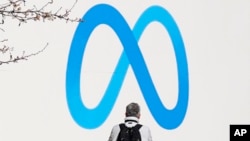More than six months into a battle of wills between Facebook and the Canadian government, the biggest losers so far appear to be small local news outlets in Canada.
That was not the goal when the government introduced its Online News Act last year, requiring large social media companies to compensate Canadian news organizations for their original content that is posted and shared on the digital giants' platforms.
Google eventually reached a deal in November, under which it contributes $73.6 million a year to be distributed among Canadian news publishers. But Facebook's parent company, Meta, responded by blocking all news sharing on its platforms in Canada, saying there was therefore no entities who deserved compensation.
There is little evidence that the largest Canadian media companies have been seriously hurt by the boycott, which was initiated in August 2023, and Facebook itself appears to have registered no measurable loss in traffic or users.
But small local news outlets that relied heavily on Facebook to attract audiences to their own websites say they are suffering.
'They destroyed small media'
"I think this ban will last quite some time," said Rene J. Roy, a co-founder of Wreckhouse Press, a small local news outlet and publisher in the eastern province of Newfoundland. "As a result, the Canadian government has done more damage to Canadian media than they were hoping to. I think they destroyed small media.
"As a result, our business will not survive six months," Roy said in an interview with VOA. "It's certainly not a good feeling to know the Canadian government is responsible for this. It's not all on them, it's on Facebook and it's on Yahoo and Google."
While the Facebook ban is just one of several factors affecting small news outlets, it has contributed to a difficult time for local media in Canada.
A recent study prepared for Toronto Metropolitan University's School of Journalism found that 36 local news outlets closed across the country during the first 11 months of 2023. Of those, 29 were community newspapers and seven were privately owned radio stations.
April Lindgren, the principal investigator for the Local News Research Project, which conducted the study, told the Canadian Press news agency that 516 local radio, TV, print and online news operations have shut down in 345 communities across Canada since 2008.
"During that same time period, 215 new local news outlets launched in 152 communities. Just one of those came in 2023," Lindgren said.
One of the most immediate impacts of the Facebook ban came during record wildfires that raged across much of Canada last summer, just weeks after the Facebook action commenced. Suddenly, endangered residents found themselves unable to turn to the social media platform for the latest news on the spread of the fires and potential rescue efforts.
Roy, the Wreckhouse editor, pointed out that in a small community like his, residents have few options for obtaining local information.
"It used to be we were one of the most popular [internet] pages in our region," he said. "Due to the ban, we've lost, I would say, 60% of our online presence. We don't have anywhere near the reach we once had, and we've also found our print readership has plummeted." In fact, Wreckhouse Weekly published its final print edition this week.
Other publishers reached by VOA were less pessimistic but acknowledged they have been hurt.
"Luckily, we'd been doing OK, but we certainly noticed that our growth in our membership program slowed," said Jeanette Ageson, publisher of the Tyee, a widely read progressive online news outlet based in the western province of British Columbia.
"Even before the news ban … Facebook was stepping away from news quite a bit," Ageson told VOA. "Before 2022, in peak COVID times, more than 20% of our traffic would be coming from Facebook, and by the time Facebook did the ban, our traffic from Facebook was down to 7%, so we'd already adjusted."
'Incorrect premise'
Meta spokesperson Lisa Laventure referred VOA to a public statement published on August 1 in which it announced the introduction of the ban.
"We have been transparent and have made it clear to the Canadian government that the legislation misrepresents the value news outlets receive when choosing to use our platforms," it said.
"The legislation is based on the incorrect premise that Meta benefits unfairly from news content shared on our platforms, when the reverse is true. News outlets voluntarily share content on Facebook and Instagram to expand their audiences and help their bottom line. In contrast, we know the people using our platforms don't come to us for news."
Meta appears to have assessed its users' habits correctly. According to an independent study commissioned by the Reuters news agency shortly after the ban was imposed, the action had almost no immediate impact on usage of Facebook by Canadians.
"Daily active users of Facebook and time spent on the app in Canada have stayed roughly unchanged since parent company Meta started blocking news there at the start of August," Reuters reported, citing data shared by Similarweb, a digital analytics company.
Six months later, the future looks discouraging to people such as Amy Romer, a freelance journalist published in major Canadian newspapers and magazines.
"It's frightening, particularly for independent journalism outlets, to think how they will reach their audiences, when they relied so heavily on social media," Romer told VOA. "I've heard it suggested that folks should print out news stories, or QR codes and pin them up in their local communities. It's like returning to the dark ages.
"As a freelancer primarily working with smaller, independent news outlets, this is a scary time for me."




